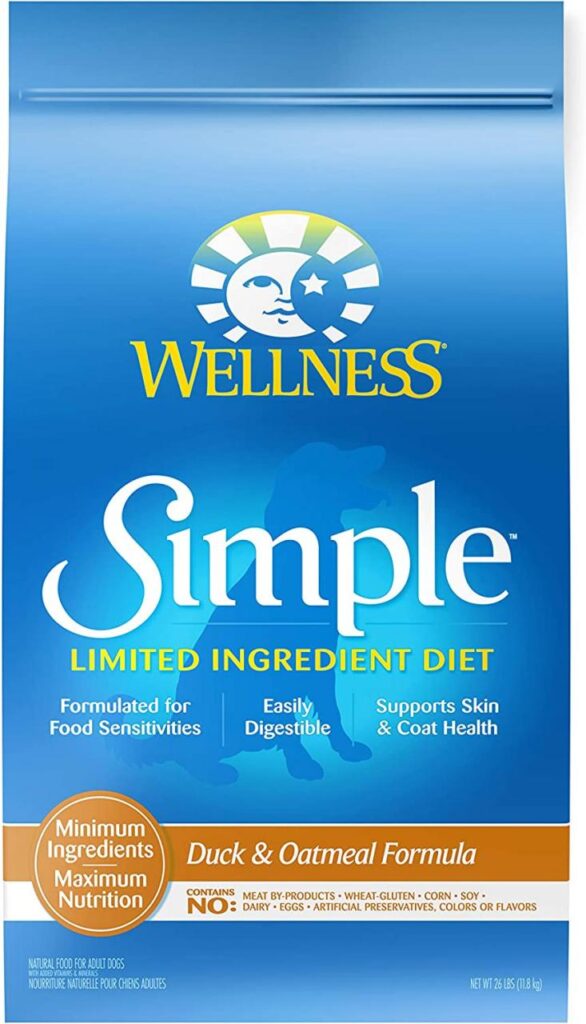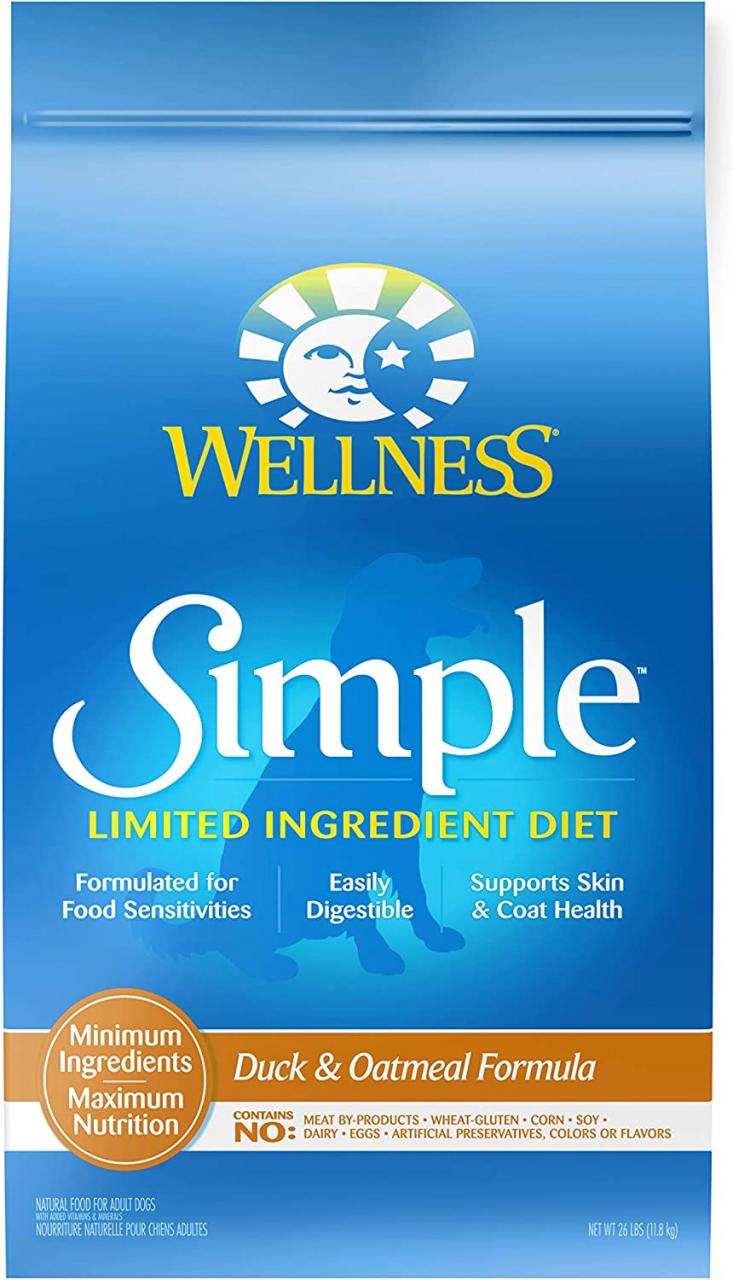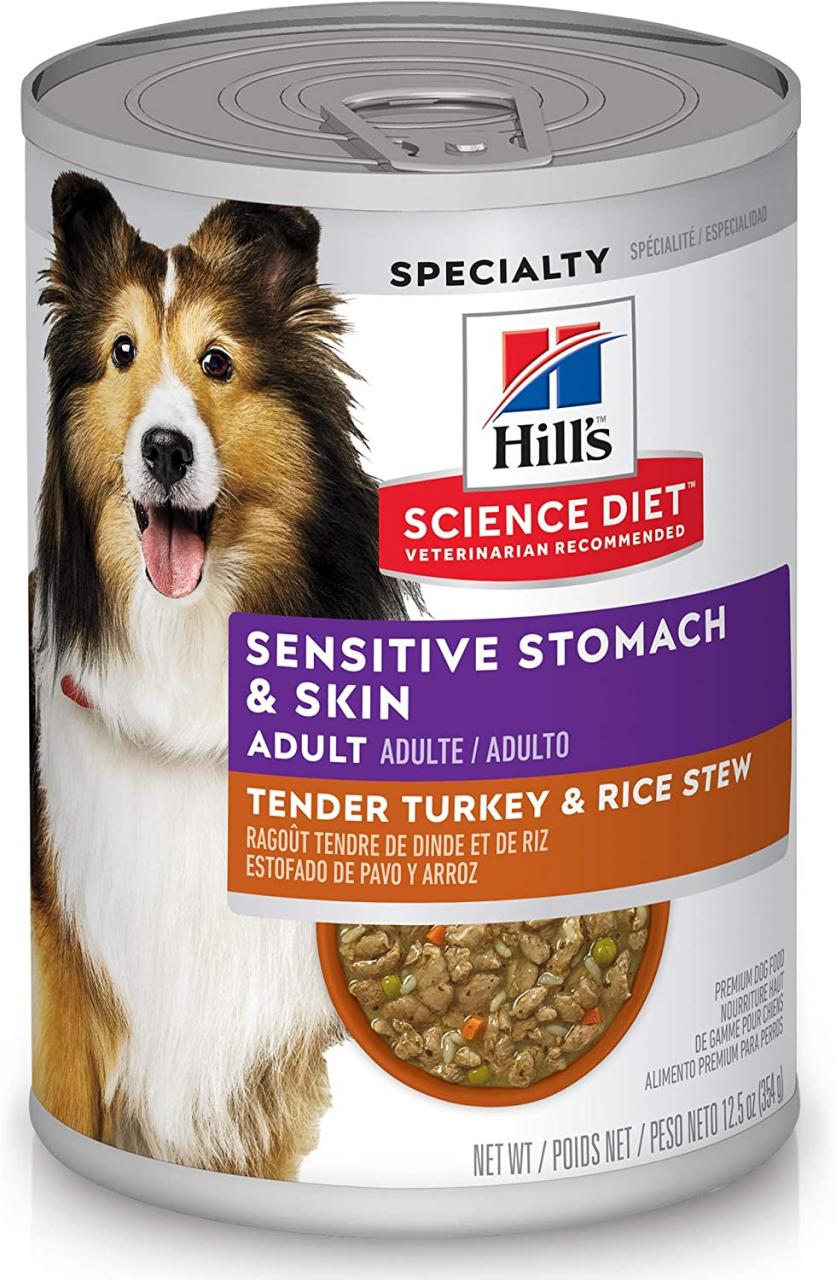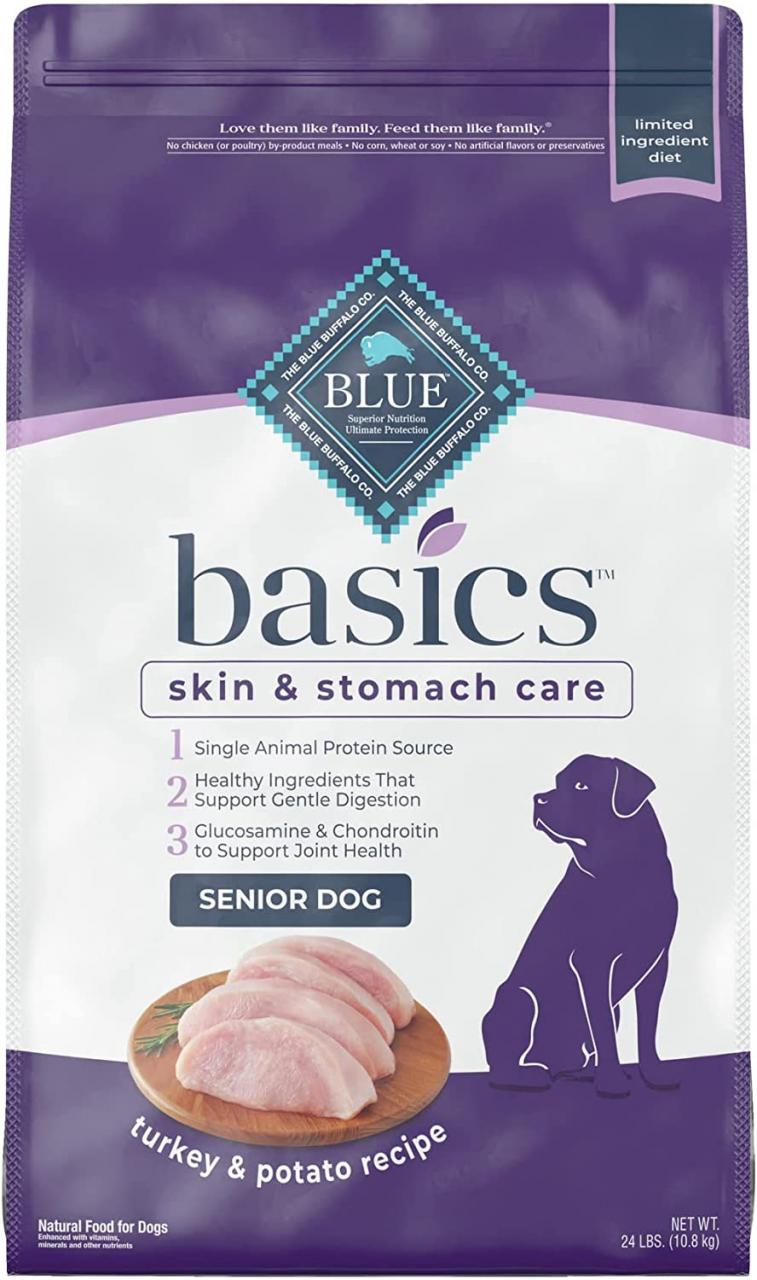When a dog has a food allergy, their immune system reacts to specific proteins in the food as if they were harmful, triggering an allergic reaction. High-quality dog food for allergies can help prevent these reactions by providing your dog with a well-balanced diet that meets its nutritional needs while avoiding the specific ingredients that trigger its allergic reactions.
Some brands that have dog food options for pups with allergies include Hill’s Science Diet Sensitive Stomach & Skin, Blue Buffalo Basics Limited Ingredient Grain-Free, and Purina Pro Plan Veterinary Diets HA Hydrolyzed.
Selecting the right food for dogs with allergies can help manage their symptoms and improve their overall health and well-being. The best dog food for allergies typically contains limited ingredients and novel protein sources and avoids common allergens such as chicken, beef, dairy, and wheat.
Choosing the best dog food for allergies can be challenging because every dog is different, and some may have allergies to certain foods.
Selecting the right dog food for allergies can help improve your dog’s quality of life and make them more comfortable by reducing or eliminating allergy symptoms.
Working closely with your veterinarian is crucial to determine the best dog food for your pet’s needs. Your veterinarian can help diagnose your dog’s food allergies and prguidehe the best diet and nutritional supplements to help manage their condition.
Finding the best dog food for allergies can be a bit tricky, but there are some things you can do to make it easier. Here are a few tips:
Get advice from your vet: If you think your dog has food allergies, it’s essential to talk to your vet first. They can help you determine what’s happening and advise what food will work best for your furry friend.
Look for simple diets: Dog food with fewer ingredients can be a good option for dogs with allergies. With fewer ingredients, it’s easier to pinpoint what might be causing the allergic reaction.
Try hypoallergenic food: This food uses proteins like duck or venison that your dog may not have eaten before. It can be a good option if your dog has had problems with other kinds of food.
Avoid common allergens: Chicken, beef, dairy, and wheat are often responsible for dog food allergies. Avoiding them is best if your dog is allergic to one of them.
Pick high-quality food: Look for dog food brands that use good-quality ingredients and don’t use fillers or artificial preservatives.
Our Top Choices
1. Best Overall Dry: Wellness 89305
This dog food from Wellness called Wellness Simple Limited Ingredient is specially made for dogs with food allergies or sensitive stomachs. It’s great for dogs that have allergies to beef or chicken. The food contains helpful things like probiotics, glucosamine, and taurine to support your dog’s health. However, there are better choices if your dog has allergies to grains or peas.
Wellness Simple uses duck as the primary source of animal protein instead of the more common beef, chicken, or lamb. Along with duck, the food includes oatmeal, peas, ground rice, and potato protein. The best part is that it has no meat by-products, dairy, corn, soy, eggs, or artificial preservatives.
But be aware that if your dog has allergies to grains, this food may not be suitable since it contains oatmeal and ground rice. Wellness Simple also offers variations of this limited-ingredient diet for small dog breeds and for maintaining a healthy weight.
2. Best Overall Wet: Hill’s Science Diet 603957
This wet dog food recipe from Hill’s Science Diet is great for dogs with sensitive tummies. It is a rich stew your dog will love and can be given alone or mixed with dry food. The food contains grains and proteins essential for your dog’s health. It’s also packed with essential nutrients such as vitamin E, vitamin B12, and vitamin D3.
However, you should know that the food still contains chicken ingredients, so it may only suit some dogs. Also, it’s a bit expensive compared to other dog foods. The lead protein recipe is turkey, an excellent alternative to chicken.
Overall, this wet food is highly palatable and gentle on sensitive stomachs. It’s made in the USA and is available as a dense paté or a thick stew. Your furry friend will surely enjoy this yummy and nutritious meal!
3. Best for Senior Dogs: Blue Buffalo 800399
The recipe has a limited ingredient list and features turkey as the primary protein source, which is ideal for senior dogs with allergies or sensitivities to other meats. The food also contains pumpkin and peas, which promote healthy digestion, and omega 3 and 6 fatty acids to support skin and coat health.
However, it’s mentioned that this dog food is more expensive than other brands. The recipe is designed to help senior dogs have a long, healthy life with optimal digestion and a healthy coat.
FAQs
What food is best for dogs with skin allergies?
Dogs with skin allergies can benefit from a diet with high-quality protein, omega-3 fatty acids, and limited ingredients. Limited ingredient diets, grain-free diets, and hydrolyzed protein diets can be helpful for dogs with skin allergies. Raw and homemade diets can also be beneficial, but working with a veterinarian or veterinary nutritionist is essential to ensure the diet is complete and balanced.
What is the number 1 food allergy in dogs?
The most common food allergy in dogs is an allergy to protein sources, with chicken and beef being the most frequent culprits. Other potential allergenic proteins include dairy products, lamb, fish, and eggs. However, it’s important to note that any food ingredient can trigger an allergic reaction in dogs. If you suspect your dog has a food allergy, it’s best to consult a veterinarian who can conduct proper testing and provide appropriate dietary recommendations.
What foods to avoid for dogs with skin allergies?
When it comes to dogs with skin allergies, it’s important to steer clear of certain foods that often trigger allergic reactions. Here are some ingredients you should avoid:
Common proteins: Chicken, beef, lamb, fish, and dairy products are often linked to food allergies in dogs. Try avoiding these proteins or experimenting with novel protein sources that your dog hasn’t had before.
Grains: Wheat, corn, and soy are common allergens found in dog food. Look for grain-free or limited-ingredient diets that use alternatives like sweet potatoes or peas.
Artificial additives: Artificial preservatives, flavors, and colors can worsen skin allergies in dogs. Choose dog foods that don’t contain any artificial additives.
Common allergenic ingredients: Some dogs may be sensitive to specific ingredients like eggs or certain fruits such as strawberries or citrus fruits. Keep an eye on your dog’s reactions and avoid these ingredients if necessary.
Remember that every dog is unique, so what works for one dog may not work for another. If your dog has a known or suspected food allergy, it’s best to consult a veterinarian for a proper diagnosis and personalized advice on the most suitable diet plan for your furry friend.




